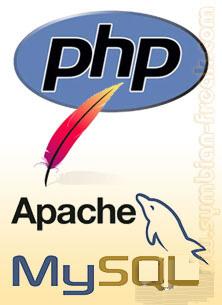10 course recommendations on indexing
Generally enable full text search when creating a table. The CREATE TABLE statement accepts the FULLTEXT clause, which gives a comma-separated list of indexed columns. The following CREATE statement demonstrates the use of the FULLTEXT clause: Input: create table productnotes ( note_id int NOT NULL AUTO_INCREMENT, prod_id char(10) &n
1. MySQL full text search: Enable full text search support

##Introduction: Full text search is generally enabled when creating a table. The CREATE TABLE statement accepts the FULLTEXT clause, which gives a comma-separated list of indexed columns. The following CREATE statement demonstrates the use of the FULLTEXT clause: Input:
2. MySQL avoids using OR conditions for index columns

#Introduction: I have suffered this loss many times. In the sql code before development, many queries with or as the where condition were even updated. Here are examples to illustrate the disadvantages of using or and how to improve it. selectf_crm_idfromd_db...
3. The problem of select count(*) query optimization and index creation when there is multiple data
Introduction: InnoDB table type, select count(*) where condition is followed by 12 query values, and it takes about 5 seconds to query 500,000 pieces of data without indexing. I would like to ask if building an index column is the best solution for this situation. , By the way, is the consumption of an index column and an index equal? For example, the impact increases...
4. The problem children all come from the different world ova php interview encountered Record the questions here
Introduction: Problem children all come from another world ova: Problem children all come from another world ova php Questions encountered in the interview are recorded here :Code optimization The copy code is as follows: for($i=0;$i<8;$i++){ array_push($week,$arr); } The copy code is as follows: for($i=0;$i<8 ;$i++){ $week[]=$arr[$i]; } //In this way, there is no additional burden of calling functions. The advantages and disadvantages of creating an index: When querying, you will first go to the index list to locate a specific The number of rows of values greatly reduces the number of matching rows traversed Disadvantages: This table must be queried no matter what,
Introduction: It is similar to the previous ordinary index, except that the value of the index column must be unique, but null values are allowed. In the case of a composite index, the combination of column values must be unique. It has the following creation methods
6. Some optimization methods and precautions for using indexes in mysql
Introduction : This article collects a lot of information from the Internet about how to use indexes in MySQL to optimize your own database. It also introduces some situations where index columns cannot appear, etc.
7. High-performance MySQL (5) Create a high-performance index-hash index

Introduction: Hash index (hashindex) is implemented based on hash table. Only queries that exactly match all columns of the index are valid. For each row of data, the storage engine will search all indexes. The column calculates a hash code, and the rows with different key values calculate
8. What are the reasons why Oracle does not use indexes?
#Introduction: Today I will summarize the reasons why Oracle does not use indexes. Take notes as you study. The clustering factor is a measure of the similarity between the data order of the index columns and the data order of the table fields.
9. A brief summary of Oracle index
Introduction: Sort first when creating an index, which is logically divided into Root (root block) and Branch (stem pieces), leaf (leaf pieces). The value, length, and rowid of the index column exist in leaf, and the stem block stores
10. The order of output results of MySQL select * when there is an index column
Introduction: Create a table with a primary key column and an index column. Then insert a batch of data and call select * from test_b. You can find that the output results are not ordered according to Id,
[Related Q&A recommendations]:
Mysql Is there any command that allows mysql to use two indexes at the same time
mysql INNODB update statement lock sequence
php - Issues with select count(*) query optimization and index building when there is multiple data
Index - Mysql Limit query optimization issues
The above is the detailed content of 10 course recommendations on indexing. For more information, please follow other related articles on the PHP Chinese website!

Hot AI Tools

Undresser.AI Undress
AI-powered app for creating realistic nude photos

AI Clothes Remover
Online AI tool for removing clothes from photos.

Undress AI Tool
Undress images for free

Clothoff.io
AI clothes remover

Video Face Swap
Swap faces in any video effortlessly with our completely free AI face swap tool!

Hot Article

Hot Tools

Notepad++7.3.1
Easy-to-use and free code editor

SublimeText3 Chinese version
Chinese version, very easy to use

Zend Studio 13.0.1
Powerful PHP integrated development environment

Dreamweaver CS6
Visual web development tools

SublimeText3 Mac version
God-level code editing software (SublimeText3)

Hot Topics
 1655
1655
 14
14
 1414
1414
 52
52
 1307
1307
 25
25
 1253
1253
 29
29
 1228
1228
 24
24
 When might a full table scan be faster than using an index in MySQL?
Apr 09, 2025 am 12:05 AM
When might a full table scan be faster than using an index in MySQL?
Apr 09, 2025 am 12:05 AM
Full table scanning may be faster in MySQL than using indexes. Specific cases include: 1) the data volume is small; 2) when the query returns a large amount of data; 3) when the index column is not highly selective; 4) when the complex query. By analyzing query plans, optimizing indexes, avoiding over-index and regularly maintaining tables, you can make the best choices in practical applications.
 Can I install mysql on Windows 7
Apr 08, 2025 pm 03:21 PM
Can I install mysql on Windows 7
Apr 08, 2025 pm 03:21 PM
Yes, MySQL can be installed on Windows 7, and although Microsoft has stopped supporting Windows 7, MySQL is still compatible with it. However, the following points should be noted during the installation process: Download the MySQL installer for Windows. Select the appropriate version of MySQL (community or enterprise). Select the appropriate installation directory and character set during the installation process. Set the root user password and keep it properly. Connect to the database for testing. Note the compatibility and security issues on Windows 7, and it is recommended to upgrade to a supported operating system.
 MySQL: Simple Concepts for Easy Learning
Apr 10, 2025 am 09:29 AM
MySQL: Simple Concepts for Easy Learning
Apr 10, 2025 am 09:29 AM
MySQL is an open source relational database management system. 1) Create database and tables: Use the CREATEDATABASE and CREATETABLE commands. 2) Basic operations: INSERT, UPDATE, DELETE and SELECT. 3) Advanced operations: JOIN, subquery and transaction processing. 4) Debugging skills: Check syntax, data type and permissions. 5) Optimization suggestions: Use indexes, avoid SELECT* and use transactions.
 Can mysql and mariadb coexist
Apr 08, 2025 pm 02:27 PM
Can mysql and mariadb coexist
Apr 08, 2025 pm 02:27 PM
MySQL and MariaDB can coexist, but need to be configured with caution. The key is to allocate different port numbers and data directories to each database, and adjust parameters such as memory allocation and cache size. Connection pooling, application configuration, and version differences also need to be considered and need to be carefully tested and planned to avoid pitfalls. Running two databases simultaneously can cause performance problems in situations where resources are limited.
 RDS MySQL integration with Redshift zero ETL
Apr 08, 2025 pm 07:06 PM
RDS MySQL integration with Redshift zero ETL
Apr 08, 2025 pm 07:06 PM
Data Integration Simplification: AmazonRDSMySQL and Redshift's zero ETL integration Efficient data integration is at the heart of a data-driven organization. Traditional ETL (extract, convert, load) processes are complex and time-consuming, especially when integrating databases (such as AmazonRDSMySQL) with data warehouses (such as Redshift). However, AWS provides zero ETL integration solutions that have completely changed this situation, providing a simplified, near-real-time solution for data migration from RDSMySQL to Redshift. This article will dive into RDSMySQL zero ETL integration with Redshift, explaining how it works and the advantages it brings to data engineers and developers.
 The relationship between mysql user and database
Apr 08, 2025 pm 07:15 PM
The relationship between mysql user and database
Apr 08, 2025 pm 07:15 PM
In MySQL database, the relationship between the user and the database is defined by permissions and tables. The user has a username and password to access the database. Permissions are granted through the GRANT command, while the table is created by the CREATE TABLE command. To establish a relationship between a user and a database, you need to create a database, create a user, and then grant permissions.
 Laravel Eloquent ORM in Bangla partial model search)
Apr 08, 2025 pm 02:06 PM
Laravel Eloquent ORM in Bangla partial model search)
Apr 08, 2025 pm 02:06 PM
LaravelEloquent Model Retrieval: Easily obtaining database data EloquentORM provides a concise and easy-to-understand way to operate the database. This article will introduce various Eloquent model search techniques in detail to help you obtain data from the database efficiently. 1. Get all records. Use the all() method to get all records in the database table: useApp\Models\Post;$posts=Post::all(); This will return a collection. You can access data using foreach loop or other collection methods: foreach($postsas$post){echo$post->
 MySQL: The Ease of Data Management for Beginners
Apr 09, 2025 am 12:07 AM
MySQL: The Ease of Data Management for Beginners
Apr 09, 2025 am 12:07 AM
MySQL is suitable for beginners because it is simple to install, powerful and easy to manage data. 1. Simple installation and configuration, suitable for a variety of operating systems. 2. Support basic operations such as creating databases and tables, inserting, querying, updating and deleting data. 3. Provide advanced functions such as JOIN operations and subqueries. 4. Performance can be improved through indexing, query optimization and table partitioning. 5. Support backup, recovery and security measures to ensure data security and consistency.




